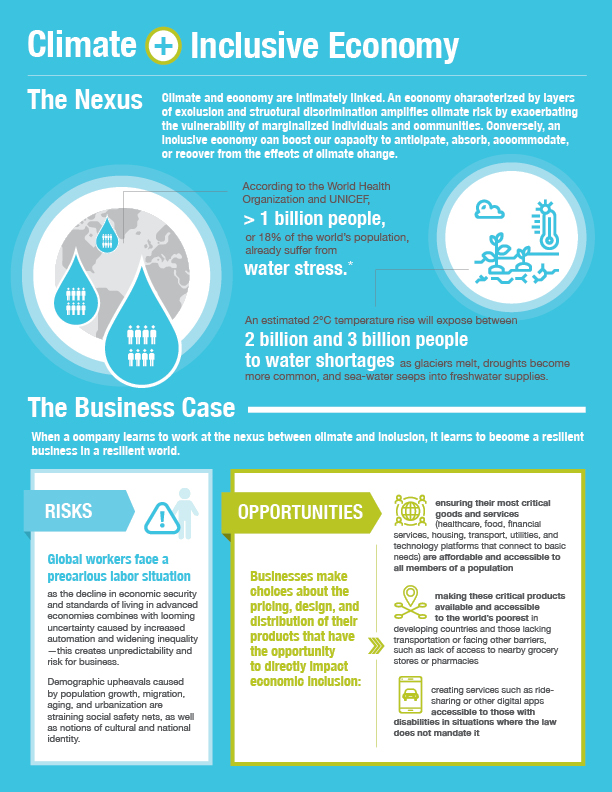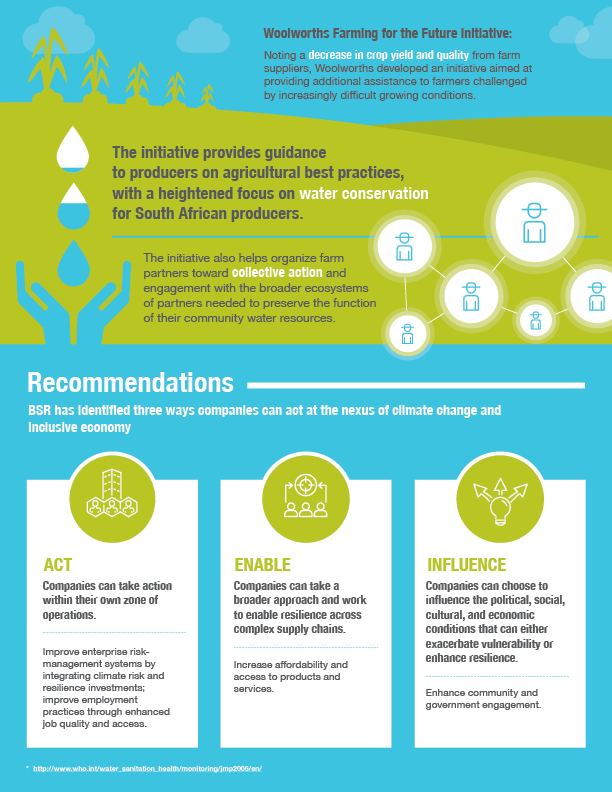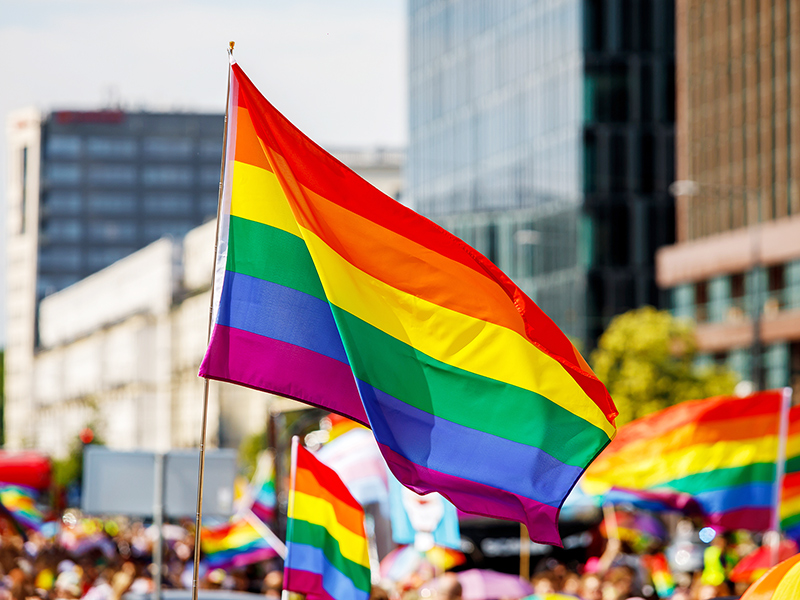Authors
-
Edward Cameron
Former Managing Director, BSR
-
Martin Lemos
Former Manager, BSR
-
Susan Winterberg
Former Associate Director, Inclusive Economy, BSR
Climate change affects each and every human around the globe, with profound and potentially lasting implications for an inclusive economy. This paper uses data and case studies to highlight the impacts of climate change on an inclusive economy and help companies across sectors understand the resulting consequences for business.
It demonstrates why and how business can act, including how companies can establish a deeper understanding of the nexus of an inclusive economy and climate resilience throughout their businesses; how to articulate the risks and opportunities for companies across various sectors; how to secure buy-in from senior leadership; and how to identify, assess, prevent, mitigate, and remedy the adverse effects of climate change.
This report is part of a series of six climate nexus reports that cover human rights, inclusive economy, women’s empowerment, supply chain, just transition, and health.
Climate and Inclusive Economy
The Nexus
Climate and economy are intimately linked. An economy characterized by layers of exclusion and structural discrimination amplifies climate risk by exacerbating the vulnerability of marginalized individuals and communities. Conversely, an inclusive economy can boost our capacity to anticipate, absorb, accommodate, or recover from the effects of climate change.
According to the World Health Organization and UNICEF, more than 1 billion people, or 18% of the world’s population, already suffer from water stress.
An estimated 2°C temperature rise will expose between 2 billion and 3 billion people to water shortages as glaciers melt, droughts become more common, and sea-water seeps into freshwater supplies.
The Business Case
Risks
Global workers face a precarious labor situation as the decline in economic security and standards of living in advanced economies combines with looming uncertainty caused by increased automation and widening inequality —this creates unpredictability and risk for business.
Demographic upheavals caused by population growth, migration, aging, and urbanization are straining social safety nets, as well as notions of cultural and national identity.
Opportunities
Businesses make choices about the pricing, design, and distribution of their products that have the opportunity to directly impact economic inclusion:
- ensuring their most critical goods and services (healthcare, food, financial services, housing, transport, utilities, and technology platforms that connect to basic needs) are affordable and accessible to all members of a population
- making these critical products available and accessible to the world’s poorest in developing countries and those lacking transportation or facing other barriers, such as lack of access to nearby grocery stores or pharmacies
- creating services such as ride-sharing or other digital apps accessible to those with disabilities in situations where the law does not mandate it.
Climate and Inclusive Economy (continued)
Woolworths Farming for the Future Initiative
Noting a decrease in crop yield and quality from farm suppliers, Woolworths developed an initiative aimed at providing additional assistance to farmers challenged by increasingly difficult growing conditions.
The initiative provides guidance to producers on agricultural best practices, with a heightened focus on water conservation for South African producers.
The initiative also helps organize farm partners toward collective action and engagement with the broader ecosystems of partners needed to preserve the function of their community water resources.
Recommendations
BSR has identified three ways companies can act at the nexus of climate change and inclusive economy:
-
Act
Companies can take action within their own zone of operations.
Improve enterprise risk- management systems by integrating climate risk and resilience investments; improve employment practices through enhanced job quality and access.
-
Enable
Companies can take a broader approach and work to enable resilience across complex supply chains.
Increase affordability and access to products and services.
-
Influence
Companies can choose to influence the political, social, cultural, and economic conditions that can either exacerbate vulnerability or enhance resilience.
Enhance community and government engagement.
Climate Nexus Report Series
Download
Let’s talk about how BSR can help you to transform your business and achieve your sustainability goals.










